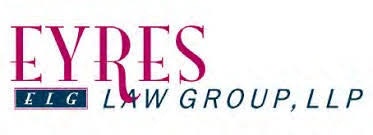New Year, New Laws Update 2025

As we close out 2024, CARPD Members will soon be ringing in the new year with new laws impacting your Districts. As in years past, the California legislative session ended with a flurry of bills, so it is imperative to be educated about these changes and how they may affect your agency.
To find out more about these new laws and many others, CAPRI Members may visit the CAPRI Member Portal to check out more summaries and the webinar hosted by Patti Eyres, Esq.
SB 1100 Discrimination: Driver’s License
The law addresses discrimination against individuals without driver’s licenses by eliminating this requirement as a condition of employment unless certain requirements are met. Under the law, an employer may not include a statement that an applicant must have a driver’s license unless the following conditions are satisfied:
- The employer reasonably expects driving to be a function of the job.
- The employer reasonably believes that using an alternative form of transportation is not comparable in travel time or cost to the employer.
SB 988 Freelance Worker Protection Act
This bill requires employers who hire independent contractors making $250 or more (in the aggregate) to have a written agreement containing certain basic information and to remit timely payment. It also requires the written contract be kept by the employer for at least 6 years and prohibits retaliation against the contractor.
AB 1976 Occupational Safety & Health Standards: First Aid – Opioid Antagonists
This bill requires Cal/OSHA to submit a draft regulation to the California Occupational Safety and Health Standards Board requiring that first aid kits in the workplace contain the nasal spray naloxone hydrochloride.
AB 2123: Disability Compensation: Paid Family Leave
This bill eliminates an employer’s ability to require employees to use accrued vacation leave before accessing California’s Paid Family Leave Program (PFL). Previously, employers could require employees to take up to 2 weeks of accrued vacation before employees could access PFL benefits. This requirement will no longer apply.
AB 2499 Employment: Unlawful Discrim. & Paid Sick Days – Victims of Violence
This bill expands the list of crimes for which employees can take time off and allows employees to take protected time off to assist family members who are victims of specified crimes. The new law also permits the use of state-paid sick leave for this purpose.
Prior to AB 2499, California law provided protections to employees from discrimination or retaliation for taking time off for jury duty, court appearances, or to employees who were victims of crime or abuse. Under the new bill, these protections remain in place, but broaden the definition of “victims” to include a victim of a “qualifying act of violence,” which means any of the following, regardless of whether anyone is arrested for, prosecuted for, or convicted of committing any crime:
- Domestic violence
- Sexual assault
- Stalking
- An act, conduct, or pattern of conduct that includes:
- An individual causes bodily injury or death to another
- An individual exhibits, draws, brandishes, or uses a firearm or other dangerous weapon, with respect to another
- An individual uses or makes a reasonably perceived or actual threat of use of force against another to cause physical injury or death.
This law also removes the threshold of 25 or more employees from the provisions for victims of crime or abuse, and now requires all employers with at least one employee to comply, except as specified. Employers with five or more employees must not discriminate or retaliate against an employee who is a victim or has a family member who is a victim from taking time off from work for additional reasons beyond obtaining relief or attempting to obtain relief (temporary restraining order, restraining order, or other injunctive relief) to ensure the health, safety, or welfare of the victim or family member of the victim.
Finally, under the law employers will be required to provide written notice of their rights established under this bill to new hires, to all employees annually, at any time upon request, and any time the employer becomes newly aware that an employee or an employee’s family member is a victim.
By Patti Eyres, Esq.
